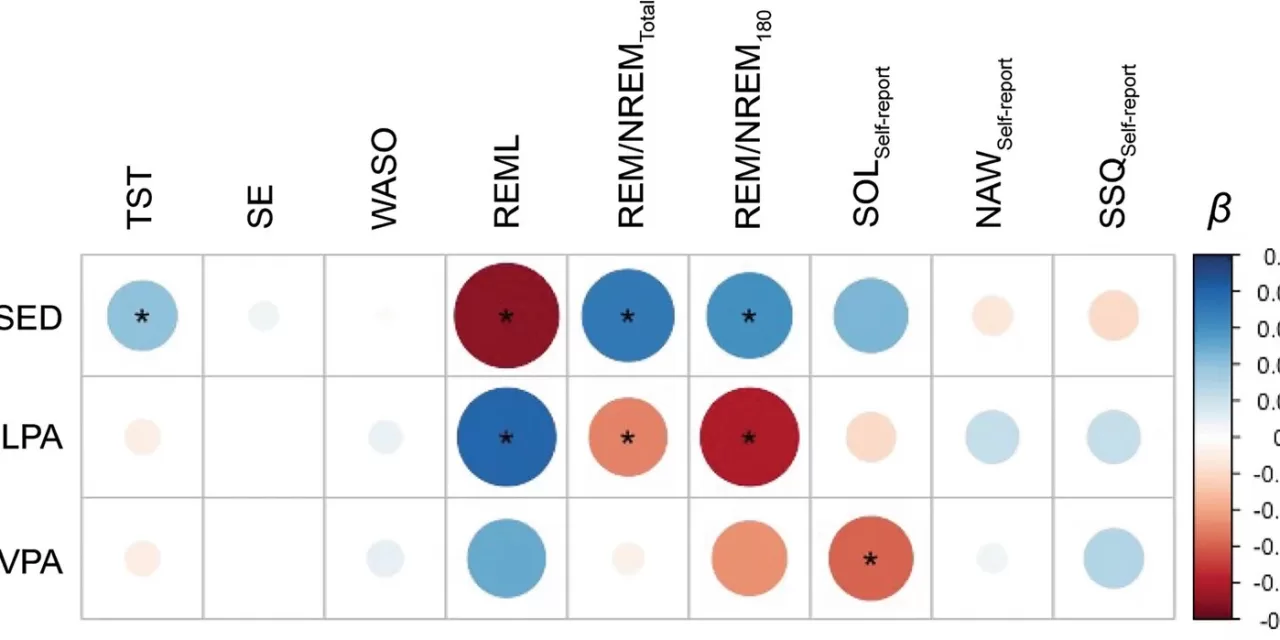In a breakthrough interdisciplinary study, researchers from The University of Texas at Austin have uncovered compelling evidence supporting the connection between physical activity, sleep quality, and psychological health.
Published in Scientific Reports, the study offers perhaps the most robust validation to date of the profound impact of physical activity on sleep patterns and emotional well-being. Unlike previous studies conducted in lab settings over limited timeframes, this research investigates the long-term effects of daily physical activity on sleep stages and mood in a natural environment.
Led by an interdisciplinary team, the study tracked sleep and activity levels in 82 young adults using advanced wearable technology. A wrist-worn activity tracker recorded movement and heart rate, enabling the determination of periods of deep (NREM) sleep and REM sleep, along with physical activity levels. Participants also provided self-reported well-being data through a smartphone app.
The research, stemming from the Whole Communities–Whole Health grand challenge research program, replicated findings from sleep labs, demonstrating that both low-intensity and moderate-to-vigorous physical activity were associated with deeper, more restorative sleep. Moreover, improved sleep quality was correlated with increased energy and reduced stress levels the following morning.
Benjamin Baird, a research assistant professor of psychology and study co-author, emphasized the innovative use of wearable technology in providing a comprehensive understanding of daily activities and their impact on sleep and mood over extended periods. This approach allowed researchers to overcome the limitations of lab-based studies, providing insights into real-world behaviors.
“Previous lab studies have their value, but they are limited in capturing the complexities of individuals’ sleep patterns over time,” said Baird. “By leveraging wearable technology, we were able to observe how variations in sleep architecture are associated with individuals’ perceived well-being.”
David M. Schnyer, chair of the Department of Psychology and co-author of the study, highlighted the potential of wearable devices like Fitbit to revolutionize sleep research. The accessibility and affordability of such devices enable researchers to study sleep architecture and its relationship with lifestyle factors and mood disorders in real-world settings.
“This study opens up new avenues for exploring the intricate interplay between physical activity, sleep quality, and psychological well-being,” said Schnyer. “The implications extend beyond the laboratory, offering opportunities to enhance our understanding of human behavior and health in everyday life.”
The groundbreaking research not only reaffirms the importance of physical activity for quality sleep but also underscores the potential of wearable technology in advancing sleep research and promoting holistic well-being.
Journal Reference: Kennedy Zapalac et al, The effects of physical activity on sleep architecture and mood in naturalistic environments, Scientific Reports (2024). DOI: 10.1038/s41598-024-56332-7











